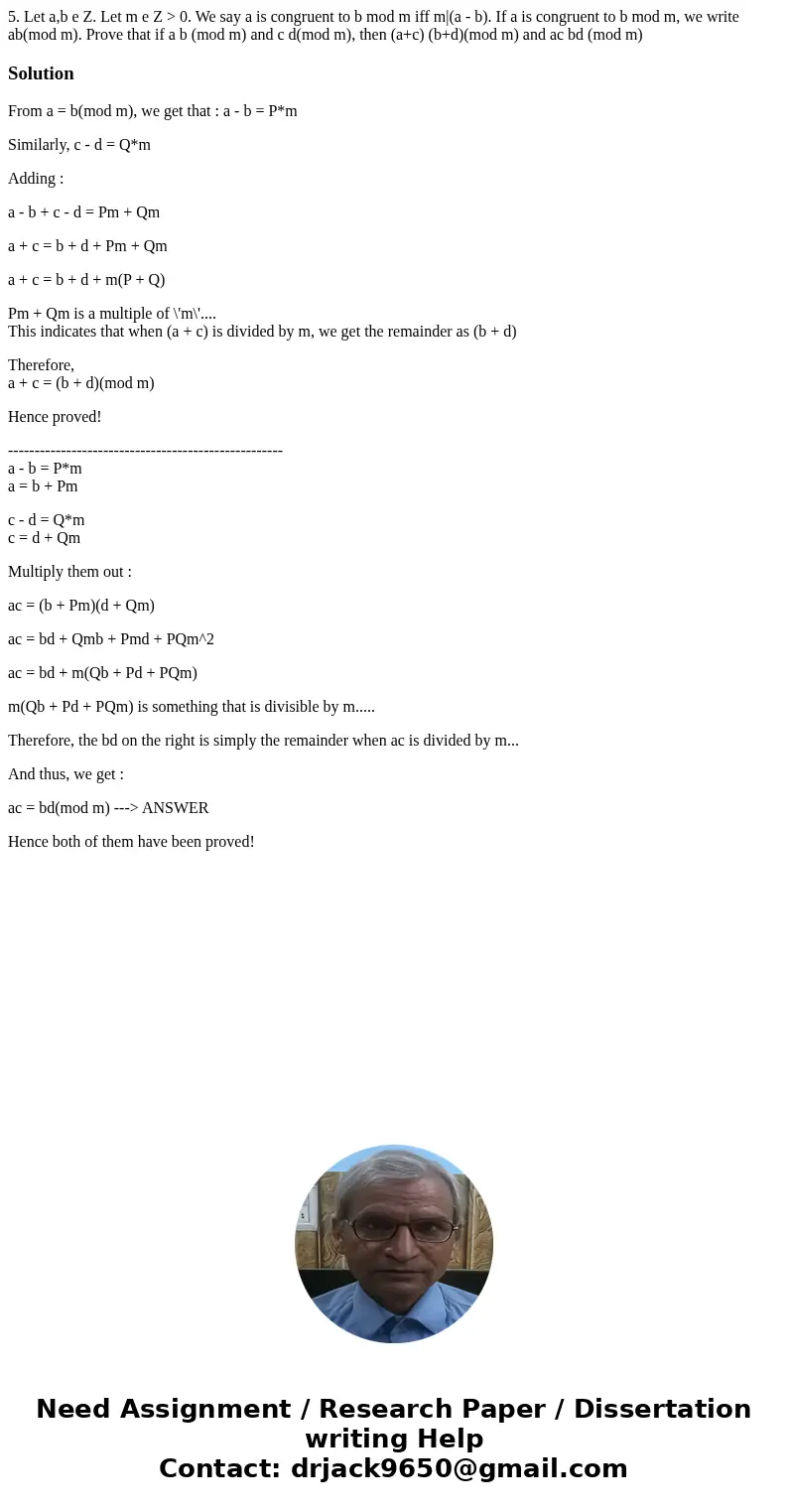5 Let ab e Z Let m e Z 0 We say a is congruent to b mod m i
5. Let a,b e Z. Let m e Z > 0. We say a is congruent to b mod m iff m|(a - b). If a is congruent to b mod m, we write ab(mod m). Prove that if a b (mod m) and c d(mod m), then (a+c) (b+d)(mod m) and ac bd (mod m) 
Solution
From a = b(mod m), we get that : a - b = P*m
Similarly, c - d = Q*m
Adding :
a - b + c - d = Pm + Qm
a + c = b + d + Pm + Qm
a + c = b + d + m(P + Q)
Pm + Qm is a multiple of \'m\'....
This indicates that when (a + c) is divided by m, we get the remainder as (b + d)
Therefore,
a + c = (b + d)(mod m)
Hence proved!
----------------------------------------------------
a - b = P*m
a = b + Pm
c - d = Q*m
c = d + Qm
Multiply them out :
ac = (b + Pm)(d + Qm)
ac = bd + Qmb + Pmd + PQm^2
ac = bd + m(Qb + Pd + PQm)
m(Qb + Pd + PQm) is something that is divisible by m.....
Therefore, the bd on the right is simply the remainder when ac is divided by m...
And thus, we get :
ac = bd(mod m) ---> ANSWER
Hence both of them have been proved!

 Homework Sourse
Homework Sourse